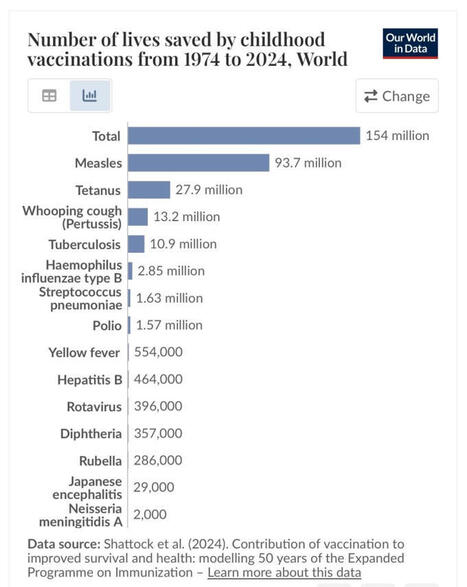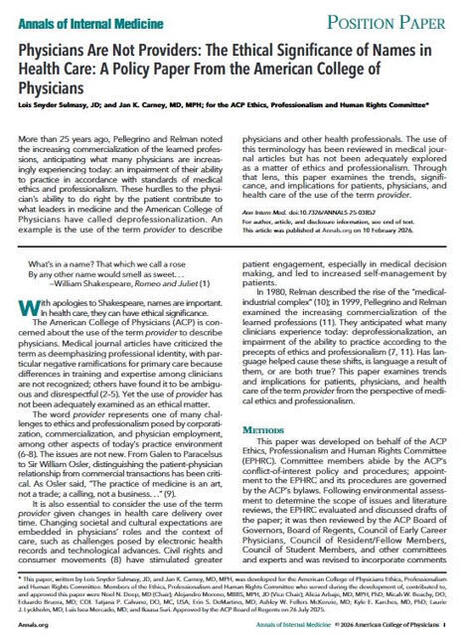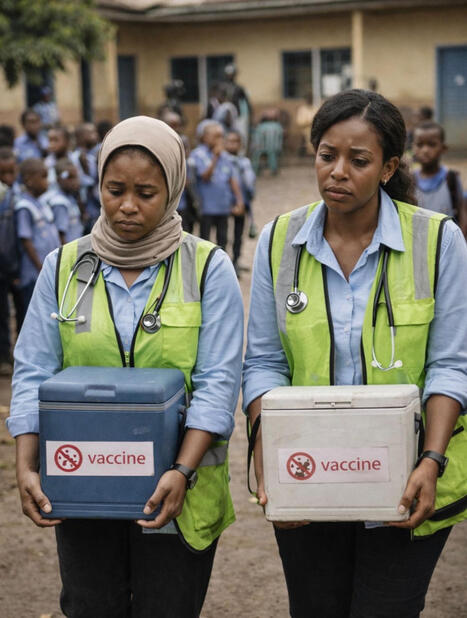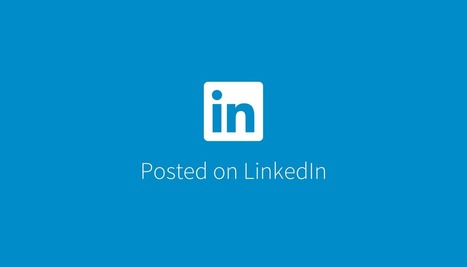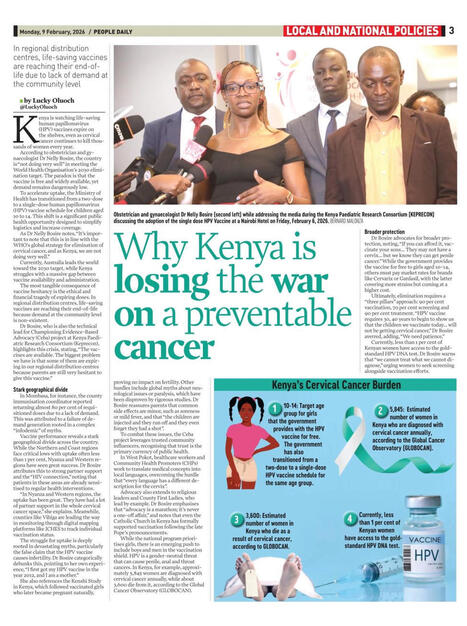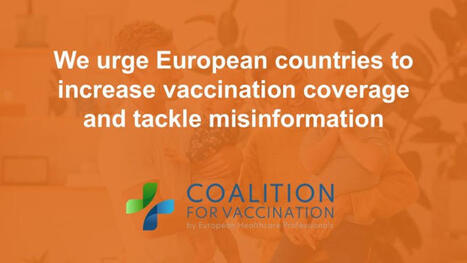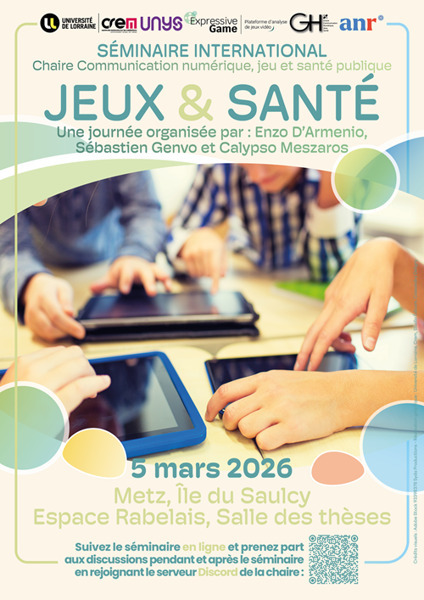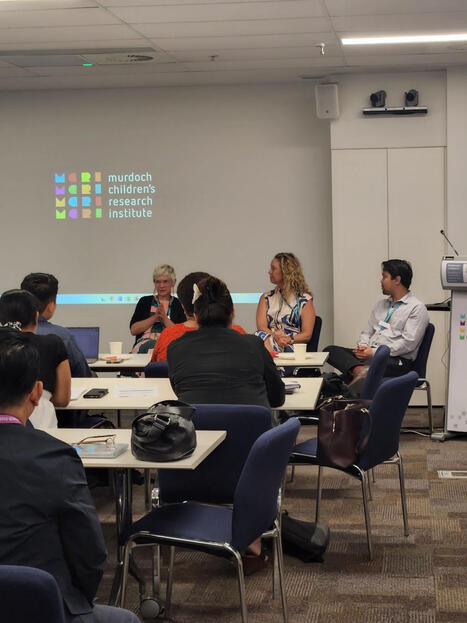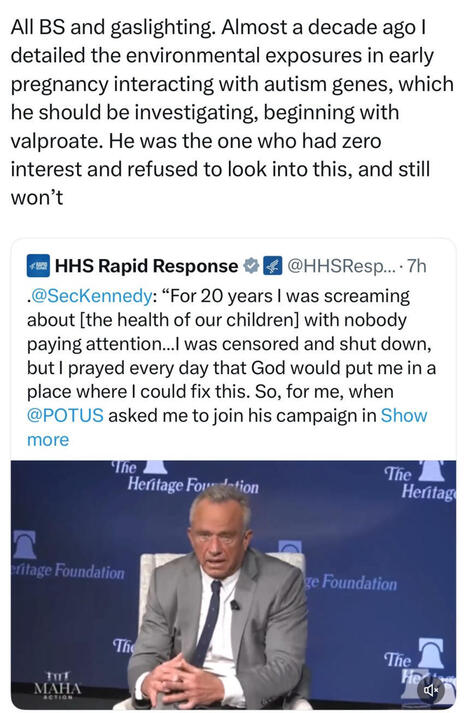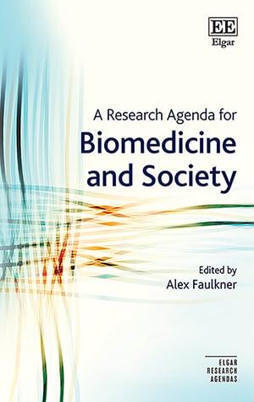 Your new post is loading...
 Your new post is loading...

|
Rescooped by
Gilbert C FAURE
from Immunology and Biotherapies
January 30, 2020 1:15 PM
|
Point of view of an Immunologist/curator in 2020 Après Bobcatsss 2020, ECIL 2021, ICDF 2022, HESIVAXs with the motto UTA "Understand to Act" Notre proposition « Désinformation Vaccinale: Curation, Observatoire, Littératies » a été retenue pour le séminaire annuel de l’Académie des Controverses et de la Communication Sensible, intitulé « La désinformation : nouvelles formes, nouveaux défis », qui s'est tenu à Paris le mardi 26 novembre 2024. Voir ci-après posts du 27 novembre, avec lien vers la présentation sur Slideshare. Présentation le 20 mars 2025 à InfoxsurSeine deux jours pour décrypter la désinformation et échanger autour des solutions.
Quels outils concrets face aux manipulations de l’information et à l’essor de l’IA générative ? Avez vous acheté le numéro Juillet/septembre 2025 de la RECHERCHE sur LE FAUX? des sujets à approfondir - Vaccins et argent Making money with vaccines, against vaccines le sujet le plus chaud, de 3,36 euros par mois à 300 millions de dollars? - Publications vraies et fausses particulièrement difficile - Obligations, exemptions, incitations, peut-être plus simple?

|
Scooped by
Gilbert C FAURE
Today, 4:07 AM
|
Vaccines Save Lives…
In this world where anti-vaxxers with loud megaphones pollute the social
media ether with disinformation, misinformation and outright conspiracies, push untested “wellness” alternatives (at a profit on their websites), and insist that the right to choose overpowers the need to protect - it is helpful to recognize the outsized impact childhood vaccines have had on lives saved.
Adding insult to injury is the inexplicable choice to the most important public health position in government to an environmental lawyer with a history of bizarre behaviors - dropping a bear cub carcass in Central Park, beheading a whale with a chainsaw or self debating himself - a declared anti-vaxxer with zero medical knowledge (“I don’t think people should be taking advice - medical advice from me”) who is on a baseless and capricious power trip to “reshape” the CDC and FDA, prioritizing ideology over scientific evidence.
Well, I shall let the data speak for itself…..
#childhoodvaccines #rfkjr #antivaxxer #livessaved

|
Scooped by
Gilbert C FAURE
Today, 3:42 AM
|
A new ethics policy paper from the American College of Physicians argues that referring to physicians as “providers” undermines the ethical foundation of the patient‑physician relationship and fails to reflect physicians’ training, responsibilities, and professional role.
The paper calls for language that preserves clinical integrity, transparency, and professionalism in health care and recommends referring to professionals with varied medical credentials as clinicians or health care professionals. Read the paper here: https://bit.ly/4kMsHi9

|
Scooped by
Gilbert C FAURE
Today, 3:40 AM
|

|
Scooped by
Gilbert C FAURE
Today, 3:36 AM
|
Merci Helen Petousis-Harris important d’expliquer les mécanismes et de réfuter des affirmations péremptoires

|
Scooped by
Gilbert C FAURE
February 10, 11:15 AM
|
Sur cette capture, on voit :
👉 le canal « Louis Fouché Officiel »
👉 qui relaie la promotion d’une BD co-écrite par Nicolas Fraisse (« Je sors de mon corps et alors ? »),
👉 avec séance de dédicace en librairie.
Or Nicolas Fraisse est connu pour ses récits de sorties hors du corps présentés comme réels, largement utilisés dans les milieux :
• spiritualistes,
• ésotériques,
• et pseudo-scientifiques.
Quand Louis Fouché relaie ce contenu, il ne s’agit pas juste d’un coup de pub culturel :
➡️ il contribue à légitimer ces récits
➡️ auprès d’un public déjà sensible aux discours alternatifs
➡️ en brouillant la frontière entre :
fiction / croyance / réalité scientifique.
C’est exactement le même mécanisme que pour :
• la santé « alternative »,
• les récits d’expériences extraordinaires non démontrées,
• les figures présentées comme témoins plutôt que comme auteurs de fiction.
On est dans une stratégie de normalisation :
📌 « ce n’est qu’une BD »
📌 « ce n’est qu’un témoignage »
📌 « ce n’est que du partage »
… alors que ça diffuse un imaginaire présenté comme crédible.

|
Scooped by
Gilbert C FAURE
February 10, 11:13 AM
|
Beyond the Needle: Understanding Vaccine Acceptance
In some schools, children showed up already instructed
“Don’t take it.”
“Something bad will happen.”
“Just refuse.”
This resistance didn’t come from nowhere.
It came from fear.
From past experiences.
From mistrust.
From misinformation passed quietly from adult to child.
As public health professionals, it’s easy to focus on coverage numbers and targets. But moments like this remind us that vaccination is not just a medical intervention, it’s a trust intervention.
People don’t resist vaccines because they hate health.
They resist because they don’t feel safe, informed, or included.
So the question is not just “How do we vaccinate more children?”
It’s “How do we communicate better with parents, caregivers, and communities?”
Some lessons worth reflecting on:
• Information alone is not enough context matters
• Fear grows in silence , engagement reduces resistance
• Communities trust familiar voices more than institutions
If we want better outcomes, we must:
• Start conversations earlier, not at the point of injection
• Work with schools, religious leaders, and community influencers
• Replace medical jargon with simple, honest explanations
• Listen not just educate
Vaccine hesitancy is not a failure of science.It’s a signal that trust still needs work.And trust is built person by person, conversation by conversation.
#PublicHealth #Vaccination #MeaslesRubella #HealthCommunication #VaccineConfidence #CommunityEngagement #NigeriaPublicHealth

|
Scooped by
Gilbert C FAURE
February 10, 4:53 AM
|
As trust in vaccines continues to be tested, clarity around regulatory authority and evidence-based decision-making is critical.
Our latest reporting examines whether COVID-19 vaccines could realistically be removed from the U.S. market—and what the implications would be for public health.
🔗 Learn more here: https://lnkd.in/g-6zifFQ
#covid #covid19 #vaccines #PublicHealth #Immunization #InfectiousDisease #HealthPolicy #ScienceBased

|
Scooped by
Gilbert C FAURE
February 10, 4:41 AM
|
In vaccinations, chronic care, and immunology—health literacy can be the difference between protection and preventable complications. 🛡️
Patients with chronic conditions or immune-mediated diseases often face the most complex decisions:
• Which vaccines are recommended?
• When is the best time to vaccinate?
• How does therapy impact immune response?
• What guidance should they trust?
In a world of conflicting headlines, verified information is a clinical quality issue—not just a communications issue.
A simple verification framework for patients and providers:
1) Start with trusted, evidence-based sources
• Centers for Disease Control and Prevention (adult schedules, risk-based guidance)
• National Institutes of Health / MedlinePlus (plain-language, research-backed resources)
• World Health Organization (global immunization guidance)
2) Look for the “trust markers”
Verified health content should include:
• Named medical reviewers or guideline authors
• References to ACIP or specialty society recommendations
• Transparent updates when guidance changes
• Balanced discussion of benefits and risks
3) Use the 3-check method before acting
• Date: Is the recommendation current?
• Evidence: Are there credible sources or guidelines?
• Consensus: Does it match other trusted organizations?
4) Bring the conversation back to the care team
For patients with diabetes, COPD, cancer, autoimmune disease, or on immunosuppressive therapy, timing and sequencing matter.
That’s where shared decision-making with a clinician or pharmacist is critical.
⸻
At Veritas Bridge Medical Education, we see health literacy as a quality and outcomes strategy:
• Verified education embedded in care pathways
• Toolkits aligned to guidelines
• Dashboards tracking education → behavior change → immunization rates
Because when patients and providers trust the information, the right decisions happen at the right time.
What “source of truth” do you rely on when making vaccine or immunology decisions?
#HealthLiteracy #Vaccines #Immunology #ChronicCare #PatientEducation #QualityImprovement #PopulationHealth #MedicalEducation #VeritasBridge

|
Scooped by
Gilbert C FAURE
February 10, 4:10 AM
|

|
Scooped by
Gilbert C FAURE
February 10, 4:06 AM
|
Studies show the #fluvaccine may not reduce demand on hospitals. Are flu vaccine mandates science-based? Read PIC’s “9 Flu Vaccine Facts” and decide for yourself: picdata.org/flu-vaccine
#informedconsent #vaccines

|
Scooped by
Gilbert C FAURE
February 10, 4:05 AM
|
I joined forces with Katie Suleta to champion something medicine needs now more than ever: strong, evidence-based science communication skills! As a medical educator, I know firsthand that embedding science communication training into the medical education curriculum is an essential step toward training the next generation to navigate uncertainty and communicate with empathy to rebuild and strengthen public trust in science and medicine.
Now is the time for universities and academia at large to make science communication a part of graduate and professional training.

|
Scooped by
Gilbert C FAURE
February 10, 4:04 AM
|
Prebunking Harmful Social Media Content: Establishing Cognitive Immunology through Preventive Moderation (ACIS 2025 Proceedings):
https://lnkd.in/dVza7zK5
Glimpse: By employing a future-focused prebunking intervention to enhance cognitive resilience against authoritarian and extremist information, this study suggests a preventive strategy for harmful social media content. Prebunking was contrasted with netiquette instruction and control circumstances in two online tests. Prebunking outperforms typical treatments in reducing authoritarian attitudes and increasing intentions to report harmful content, according to the results. The results demonstrate how proactive, cognitively based tactics might strengthen digital resistance and supplement reactive material control.
---
Free articles and analyses on soft counter-extremism, against online hate, and on the theory of mis-/disinformation (usually third-party content). Two-week reviews available via the following three Policyinstitute.net websites:
• counter-terrorism.org
• preventhate.org
• strategism.org
The most recent LinkedIn posts on the above subjects, with glimpses, can be accessed via:
• https://lnkd.in/eBarZAew
The views expressed in this post is that of the author(s) of the source content and do not necessarily represent those of Policyinstitute.net and its staff. While we carefully produce the glimpses to the articles, documents, or recordings that we hyperlink, we are not responsible for textual changes nor for imponderable parts of the original items.
#policyinstitutenet #preventradicalization #preventextremism #counterextremism #preventhate #disinformation #misinformation
|

|
Scooped by
Gilbert C FAURE
Today, 4:17 AM
|
New Abacus Data polling for the Canadian Medical Association diagnoses the problem.

|
Scooped by
Gilbert C FAURE
Today, 3:43 AM
|
Let's take a look at all of the kids who have died in the latest measles outbreak in Israel - kids who were previously healthy and unvaccinated.

|
Scooped by
Gilbert C FAURE
Today, 3:41 AM
|

|
Scooped by
Gilbert C FAURE
Today, 3:37 AM
|
Kenya is watching life-saving human papillomavirus (HPV) vaccines expire on the shelves, even as cervical cancer continues to kill thousands of women every year.
According to obstetrician and gynaecologist Dr Nelly Bosire, the country is “not doing very well” in meeting the World Health Organisation’s 2030 elimination target. The paradox is that the vaccine is free and widely available, yet demand remains dangerously low.
To accelerate uptake, the Ministry of Health has transitioned from a two-dose to a single-dose human papillomavirus (HPV) vaccine schedule for children aged 10 to 14.
#HPVVaccine #CervicalCancer #PublicHealth #KenyaHealth #WomenHealth #CancerPrevention #HealthCommunication #EndCervicalCancer

|
Scooped by
Gilbert C FAURE
February 10, 11:41 AM
|
La comédienne, suivie par plus de 300 000 personnes sur le réseau social Instagram, a partagé mardi une publication vidéo critiquant les mesures de l'état d'urgence sanitaire. Dans les commentaires, elle évoque une thèse sur Bill Gates directement venue des milieux complotistes.

|
Scooped by
Gilbert C FAURE
February 10, 11:14 AM
|
📢 Healthcare professionals urge European countries to increase vaccination coverage and tackle misinformation
🌍 The Coalition for Vaccination is concerned that the success of vaccine protection may be in danger, due to vaccine hesitancy, vaccine shortages, misinformation and disinformation, and structural barriers to access within healthcare systems
⚡ Losing protection could have dangerous consequences for individuals and population groups
🏛️ The Coalition for Vaccination supports the European Commission’s continued work, alongside Member States, European Centre for Disease Prevention and Control (ECDC) and European Medicines Agency, to:
- Provide clear, accessible, and evidence-based information
- Actively counter misinformation and disinformation
- Support national vaccination strategies based on scientific evidence
- Provide adequate education and continuing professional development for healthcare professionals,
- Monitor the performance of immunisation programmes
- Advance a European digital vaccination card
- Improve transparency in vaccine approval processes
- Strengthen independent, national and EU-wide vaccine safety surveillance.
➡️ Read the full statement here: https://lnkd.in/eHyGrnsp
#CoalitionForVaccination #VaccinesWork

|
Scooped by
Gilbert C FAURE
February 10, 11:11 AM
|
Jeux et santé, séminaire Chaire Communication numérique, jeu et santé publique Type de manifestation Séminaire Date (smart) 05 mars 2026, 09:00 - 18:00 Lieu Metz, Espace Rabelais, Salle des thèses (2e étage) Organisateur(s) Enzo D’Armenio Sébastien Genvo Calypso Meszaros le Centre de recherche sur les médiations l’Expressive Game Lab la Chaire « Communication Numérique, Jeu et Santé Publique » Descriptif Suivez le séminaire en ligne via ce lien : https://ultv.univ-lorraine.fr/live/event/1438-seminaire-international-jeux-et-sante/ Prenez part aux discussions lors du séminaire (et après) en rejoignant le serveur Discord de la chaire : https://discord.gg/BQ2knDqz À l'intersection des SHS, de l'ingénierie, de la médecine, la chaire Communication numérique, jeu et santé publique explore de façon interdisciplinaire les mises en application et les relations entre jeu et santé : gamification, médiation des problématiques de santé par le jeu, acquisition de connaissances sur certains sujets à partir d'expériences ludiques. Ce séminaire international marque le premier temps fort des activités de la chaire et vise à ouvrir les réflexions en créant du lien sur des initiatives scientifiques menées au plan international. Il s'agit d'offrir un espace de réflexions et de rencontres entre différentes sensibilités disciplinaires : psychologie et ergonomie, sémiotique et sciences cognitives, design et game studies, sciences de l’information et de la communication, informatique. Programme : 08 H 30 - 09 H 00 : Accueil 09 H 00 - Ouverture du séminaire Sébastien Genvo (Université de Lorraine), Enzo D’Armenio (Université de Lorraine) et Calypso Meszaros (Université de Lorraine) : La Chaire « Communication Numérique, Jeu et Santé Publique » SESSION 1 : GAME DESIGN ET JEUX THÉRAPEUTIQUES 09 H 20 - Le gameplay comme intervention : concevoir des jeux à impact sur la santé Emmanuel Guardiola (Cologne University of Applied Sciences) 10 H 20 - Grasp-IT Xmod : une nouvelle génération de jeu thérapeutique ? Stéphanie Fleck (Université de Lorraine) 11 H 20 - Jeu de gestion de crise et comportement vaccinal : le projet Sars Wars à l'Université de Liège Bjõrn-Olav Dozo (Université de Liège) et Alexis Messina (Université de Liège) 12 H 20 - 14 H 00 : Pause déjeuner SESSION 2 : ÉDUCATION ET GAMIFICATION EN SANTÉ 14 H 00 - Médecine et XR, entre ludification et traduction interréelles Mattia Thibault (Tampere University) 15 H 00 - Effets des jeux vidéo sur la santé : approche critique de l'usage du design persuasif et de la gamification Maude Bonenfant (Université du Québec à Montréal) 16 H 00 - 16 H 30 : Pause-café 16 H 30 - Éducation au jeu, éducation en jeu : le potentiel des jeux vidéo pour traiter des questions de santé mentale. Étude de cas de créations étudiantes Thibault Philippette (Université catholique de Louvain) 17 H 30 - Conclusions sous forme de table ronde Localisation 49.120934297971, 6.1656295523769 Partager Autres événements + Jeux et santé, séminaire Chaire Communication numérique, jeu et santé publique Séminaire Socio-anthropologie de l’imaginaire du temps Séminaire [Webinaire Mon nom est personne] Personne et personnage dans la langue Séminaire

|
Scooped by
Gilbert C FAURE
February 10, 4:46 AM
|
Sign in or join now to see posts like this one and more.

|
Scooped by
Gilbert C FAURE
February 10, 4:38 AM
|
Speculative claims about COVID-19 vaccines affecting fertility and childbirth have circulated widely. We aimed to examine whether COVID-19 vaccination is causally associated with childbirth in Swedish women. We conducted a cohort study using a representative population of 369,000 to emulate a randomized experiment, comparing childbirth rates between vaccinated and unvaccinated women. Cox proportional hazards models were applied, treating vaccination as a time-varying covariate. Causal modeling was used to adjust for potential bias. To capture vaccine effects on both conception and established pregnancies, the index event was set at an estimated conception date, 280 days prior to childbirth. We show that with an assumed average pregnancy length of 280 days, there are no statistically significant associations between COVID-19 vaccination and childbirth (unadjusted HR = 0.94 (95% CI 0.89-1.00); adjusted HR = 1.03 (95% CI 0.97-1.09). Assuming a shorter pregnancy length (266 days), the associations between vaccination and childbirth remain insignificant (unadjusted HR = 0.96 (95% CI 0.90-1.02); adjusted HR = 1.04 (95% CI 0.98-1.11)). Neither are there statistically significant associations between COVID-19 vaccination and recorded miscarriages (unadjusted HR = 0.84 (95% CI 0.69-1.03); adjusted HR = 0.86 (95% CI 0.70-1.05). COVID-19 vaccination is not associated with a decrease in childbirth after adjusting for common confounding factors. These findings provide evidence to support vaccination policies for women of childbearing age. Nordvall et al. use a cohort study design to study causal effects of the COVID-19 vaccine on childbirth rates in a representative Swedish population. They show that COVID-19 vaccination has no association with either childbirth rates or miscarriages. Early, unfounded rumors spread during the COVID-19 pandemic claimed that mRNA vaccination could cause infertility. Later, suspicions were raised regarding whether reductions in childbirth observed during the pandemic were associated with the novel COVID-19 vaccines. We therefore study effects of COVID-19 vaccination in a representative population of Swedish women, and adjust for any confounding effects. No association is observed between COVID-19 vaccination and childbirth, or between vaccination and recorded miscarriages. We thus find no evidence for any connections between COVID-19 vaccination and the observed decrease in childbirth. Our results are relevant for consideration when vaccination policies involving women of childbearing age are determined.

|
Scooped by
Gilbert C FAURE
February 10, 4:09 AM
|

|
Scooped by
Gilbert C FAURE
February 10, 4:06 AM
|
Oral vaccines offer protection to newborn babies against severe infections and follow the same route into the digestive system as many bacteria.
Murdoch Children's Research Institute (MCRI) Professor Julie Bines spoke to The Scientist magazine about this needle-free delivery system and the advantages of oral vaccines in low resource countries.
These vaccines pose unique challenges such as surviving the digestive tract to ensure targeted release and navigating how breastmilk can interfere with their effectiveness.
Professor Bines also explained how her team, led by the late Professor Ruth Bishop, developed and tested an oral rotavirus vaccine (RV3-BB) that can protect young children against severe gastroenteritis.
Read the full story 👉 https://lnkd.in/gs7242jY
#MCRI #MedicalResearch #Vaccination

|
Scooped by
Gilbert C FAURE
February 10, 4:05 AM
|
Peter Hotez MD PhD DSc(hon) posted images on LinkedIn

|
Scooped by
Gilbert C FAURE
February 10, 4:02 AM
|
Another "patch" of my patchwork ethnography on the production of vaccine side effects—developed as part of my PhD research in anthropology—has just been published!
The chapter, co-authored with Stuart Blume, appears in "A Research Agenda for Biomedicine and Society", edited by Alex Faulkner and published by Edward Elgar Publishing. Many thanks to Alex for the thoughtful editorial work and for bringing together scholars from sociology, anthropology, STS, political science, law, and related fields to explore how biomedical technologies shape—and are shaped by—social life, and how they might be governed for the public good.
Our chapter focuses on pharmacovigilance and society: how vaccine safety is monitored, how reports of side effects are translated into regulatory assessments, and how (or whether) these assessments shape public confidence in vaccines. While regulators were convinced by the evidence on COVID-19 vaccines, many people were not, often citing fear of side effects. This gap between pharmacovigilance systems and vaccine confidence is both a challenge for public health and a rich site for social science inquiry, raising questions about trust, power, risk perception, and misinformation. In light of ongoing vaccine debates—and the very real possibility of future pandemics—we argue that pharmacovigilance deserves a central place in discussions at the intersection of biomedicine and society.
Looking forward to exchanging thoughts on these questions!
You can find the book here:
https://lnkd.in/e4VSbU7n
#socialscienceresearch #biomedicine #pharmacovigilance #vaccines #
|






 Your new post is loading...
Your new post is loading...
